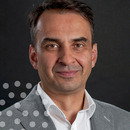Contact
Ludwig-Maximilians-Universität
Historisches Seminar
Lehrstuhl Patel
Postfach 105
Geschwister-Scholl-Platz 1
80539 München
Visitor address:
Ludwig-Maximilians-Universität
Historisches Seminar
Lehrstuhl für Europäische Geschichte
Schellingstraße 12
80799 München
Room:
K135
Phone:
+49 (0) 89 / 2180 - 5581
Email:
patel@lmu.de
Website:
Prof. Dr. Kiran Klaus Patel
Office hours:
By appointment.
Kiran Klaus Patel on the KFG and its main research areas:
"Universalisms are exposed to particularisms or produce them as defense mechanisms": Interview with Kiran Klaus Patel the role of universalisms in economic thinking, the European Union and future topics of interest for the KFG, L.I.S.A. The Science Portal of The Gerda Henkel Foundation, 2 January 2024 (in German)
Research Project
Universalizing European Trade: The EU in the World, 1980s-2000s
Kiran Klaus Patel will analyze the role of economic debates and practices in the European Communities/Union from the mid-1980s to the late 2000s. He will pay particular attention to foreign trade policies, which oscillated between universal and particular claims. The European institutions paid growing attention to questions of human rights and committed themselves to liberalizing trade in a globalizing world. At the same time, the EC/EU often adhered to a particularistic logic. Protecting regional origin, insisting on specific product standards, and other approaches were often associated with a specific European way. Such tensions reflected path dependencies (for instance in the field of the Common Agricultural Policy) but were also reactions to a new, globalized world, in which European ideas and practices saw themselves as being confronted with other forms of international governance.


